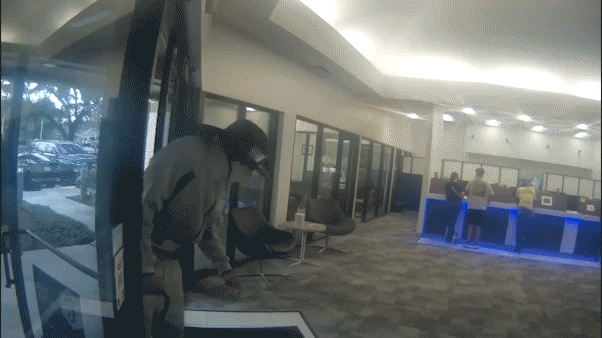A disturbing contrast is unfolding in Alabama’s justice system, highlighting deep concerns about public safety and the application of bail laws. One suspect, accused in a brutal home invasion and attack on a vulnerable elderly woman, is being held without bond, while another, linked to a mass shooting that left two dead and twelve injured, walked free on a $60,000 bond.
Brandon Pugh, 34, allegedly targeted a 75-year-old woman in her Grove Hill home, attempting to undress her while she slept. The woman bravely escaped to a neighbor’s house to call for help, narrowly avoiding a horrific ordeal. This wasn’t Pugh’s first encounter with the law; he has three prior convictions for indecent exposure and a guilty plea for burglary stemming from a 2019 incident involving attempted sexual assault and theft.
Prosecutors successfully argued for Pugh’s detention under Aniah’s Law, a statute designed to keep dangerous offenders off the streets. The law grants judges greater discretion in denying bail for serious crimes, including burglary and elder abuse – charges Pugh now faces. A petition emphasized his history of serious offenses, arguing he posed an ongoing threat to the community.
Meanwhile, Javorick Whiting, 19, arrested in connection with the October 4th mass shooting in Montgomery following the Morehouse-Tuskegee Classic, secured his release after posting a $60,000 bond. Police Chief Jim Graboys revealed that only one of the fourteen victims was the intended target, suggesting a chilling randomness to the violence.
The victim allegedly shot by Whiting remains in critical condition. Despite a motion from prosecutors to increase Whiting’s bond, citing his danger to the public, a judge denied the request, stating insufficient new evidence was presented. The decision sparked outrage and renewed debate over bail reform.
Whiting’s attorney argued against eliminating bail altogether, warning of a “slippery slope” and suggesting the case had become overly politicized. However, the swift release ignited a firestorm of criticism, particularly from Governor Kay Ivey, who pointed to the incident as a failure of the current system.
Governor Ivey highlighted the “legal loophole” that allowed Whiting’s release, referencing the “Safe Alabama” package she signed into law. She urged voters to expand Aniah’s Law next May to include attempted murder, effectively closing the gap that enabled Whiting’s freedom.
Legislators recently passed a bill to add attempted murder to Aniah’s Law, but the change requires voter approval. The contrasting cases of Pugh and Whiting have thrust the issue of bail reform into the spotlight, forcing Alabamians to confront difficult questions about justice, safety, and the rights of the accused.






